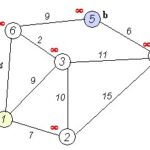Learning a new language can be daunting, but for English speakers, German presents a unique set of challenges and rewards. While it shares roots with English, offering familiar vocabulary and grammatical concepts, German also boasts complex grammar and lengthy words that can seem intimidating. So, just how hard is German to learn for an English speaker? Let’s delve in.
Shared Ancestry: A Vocabulary Advantage
German and English both belong to the Germanic language family. This shared ancestry provides a significant advantage for English speakers, as many basic words are strikingly similar. Think “arm,” “hand,” and “finger” in English, which translate directly to “Arm,” “Hand,” and “Finger” in German. This direct correlation isn’t as common with Romance languages like French or Spanish.
While not always a perfect match, even seemingly different words often share roots. For instance, the English “ten” becomes “zehn” in German, a simple sound substitution. Even words with evolved meanings, like the German “Zaun” (fence) and English “town,” reveal shared origins, reflecting historical connections between the languages.
The Lego Principle: Building Complex Vocabulary
German’s famed long words often intimidate learners. However, these words are often formed by combining smaller, simpler words – a concept we’ll call the “Lego Principle.” “Fingerhut” (thimble) literally translates to “finger-hat,” while “Handschuhe” (gloves) means “hand-shoes.” Even complex terms like “Zuckerkrankheit” (diabetes) break down to “sugar-sickness.” This compounding structure allows learners to decipher meaning and expand their vocabulary exponentially.
Grammatical Hurdles and Helpful Similarities
German grammar presents both challenges and simplicities. Verbs, for example, are simpler than in Romance languages, with only two primary tenses – present and past – similar to English. Other tenses are formed using auxiliary verbs like “have” and “will.”
However, German nouns possess grammatical gender (masculine, feminine, neuter) and utilize cases, affecting articles and adjective endings. While case exists in English pronouns (e.g., “he” vs. “him”), German applies it more broadly. Word order can also be tricky, with the verb generally occupying the second position in a sentence, a rule mirroring certain English constructions like questions.
The Rewards of Learning German
Despite the challenges, learning German offers significant rewards. German pronunciation, often slower and clearer than some Romance languages, allows for easier comprehension. Furthermore, Germans are generally encouraging of language learners, providing positive feedback and fostering a supportive learning environment. This positive reinforcement, coupled with the intellectual satisfaction of mastering a complex language, makes learning German a rewarding experience.
Conclusion
Learning German for English speakers is a journey with both bumps and smooth stretches. The shared linguistic heritage provides a strong foundation in vocabulary, while the “Lego Principle” makes complex words less daunting. Grammatical intricacies like cases and word order pose challenges, but verb structures offer a degree of simplicity. Ultimately, the clear pronunciation, supportive learning environment, and access to a rich culture make the effort worthwhile. So, while not necessarily “easy,” German is certainly achievable for dedicated English speakers.
